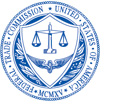Lost or Stolen Credit, ATM, and Debit Cards
If your credit, ATM, or debit card is lost or stolen, federal law limits your liability for unauthorized charges. Your protection against unauthorized charges depends on the type of card — and when you report the loss.
Report Loss or Theft Immediately
Acting fast limits your liability for charges you didn’t authorize. Report the loss or theft of your card to the card issuer as quickly as possible. Many companies have toll-free numbers and 24-hour service for such emergencies. Once you report the loss of your ATM or debit card, federal law says you cannot be held liable for unauthorized transfers that occur after that time.
- Follow up with a letter or email. Include your account number, the date and time when you noticed your card was missing, and when you first reported the loss.
- Check your card statement carefully for transactions you didn’t make. Report these transactions to the card issuer as quickly as possible. Be sure to send the letter to the address provided for billing errors.
- Check if your homeowner's or renter’s insurance policy covers your liability for card thefts. If not, some insurance companies will allow you to change your policy to include this protection.
How to Report Fraudulent Transactions
- Contact your ATM or debit card issuer.
- Report the fraudulent transaction.
Act as soon as you discover a withdrawal or purchase you didn’t make.
- Report the fraudulent transaction.
- Write a follow up letter to confirm that you reported the problem.
- Keep a copy of your letter.
- Send it by certified mail and ask for a return receipt.
- Update your files.
- Record the dates you made calls or sent letters.
- Keep copies of letters in your files.
How to Limit Your Losses
The Fair Credit Billing Act (FCBA) and the Electronic Fund Transfer Act (EFTA) offer protection if your credit, ATM, or debit cards are lost or stolen.
Credit Card Loss or Fraudulent Charges
Under the FCBA, your liability for unauthorized use of your credit card tops out at $50. However, if you report the loss before your credit card is used, the FCBA says you are not responsible for any charges you didn’t authorize. If your credit card number is stolen, but not the card, you are not liable for unauthorized use.
ATM or Debit Card Loss or Fraudulent Transfers.
If you report an ATM or debit card missing before someone uses it, the EFTA says you are not responsible for any unauthorized transactions. If someone uses your ATM or debit card before you report it lost or stolen, your liability depends on how quickly you report it:
| HOW QUICKLY YOU REPORT THE PROBLEM (after your card issuer sends you the statement showing unauthorized purchases or withdrawals) | YOUR MAXIMUM LOSS |
| Before any fraudulent transactions have been made | $0 |
| Within 2 business days | $50 |
| 2-60 business days later | $500 |
| More than 60 business days later | All the money taken from your ATM/debit card |
For unauthorized transactions involving only your debit card number (but not the loss of your card), you have 60 days after you get your statement to report the unauthorized transaction.
How to Protect Your Cards and Account Information
For Credit and ATM or Debit Cards
- Don’t disclose your account number over the phone unless you initiate the call.
- Guard your account information. Never leave it out in the open or write it on an envelope.
- Keep a record of your account numbers, expiration dates, and the telephone numbers of each card issuer so you can report a loss quickly.
- Draw a line through blank spaces on charge or debit slips above the total so the amount can’t be changed.
- Don't sign a blank charge or debit slip.
- Tear up copies and save your receipts to check against your monthly statements.
- Cut up old cards — cutting through the account number — before you throw them away.
- Open your monthly statements promptly and compare them to your receipts. Report mistakes or discrepancies as soon as possible.
- Carry only the cards you'll need.
For ATM or Debit Cards
- Don't carry your PIN in your wallet, purse, or pocket — or write it on your ATM or debit card. Commit it to memory.
- Never write your PIN on the outside of a deposit slip, an envelope, or other papers that could be lost or looked at.
- Carefully check your ATM or debit card transactions; the funds for this item will be quickly transferred out of your checking or other deposit account.
- Periodically check your account activity, especially if you bank online. Compare the current balance and transactions on your statement to those you've recorded. Report any discrepancies to your card issuer immediately.



